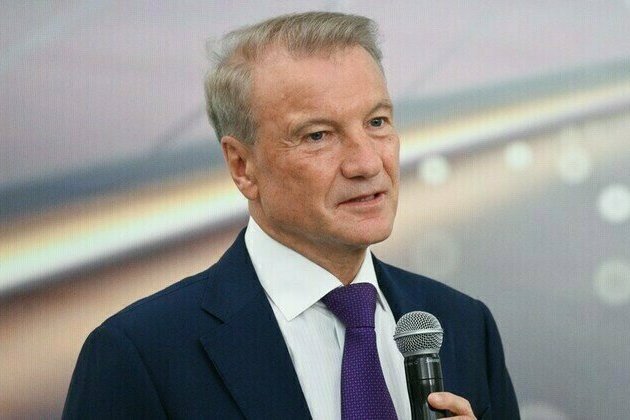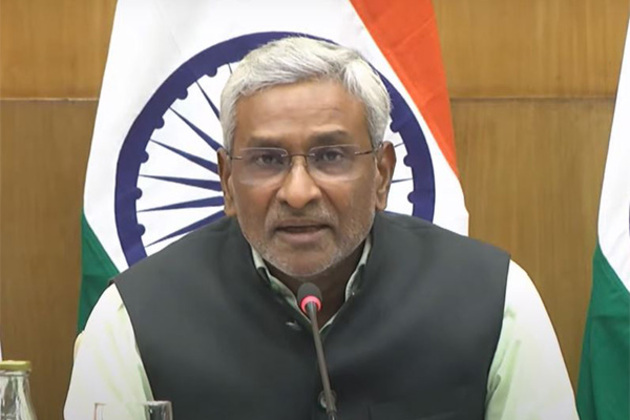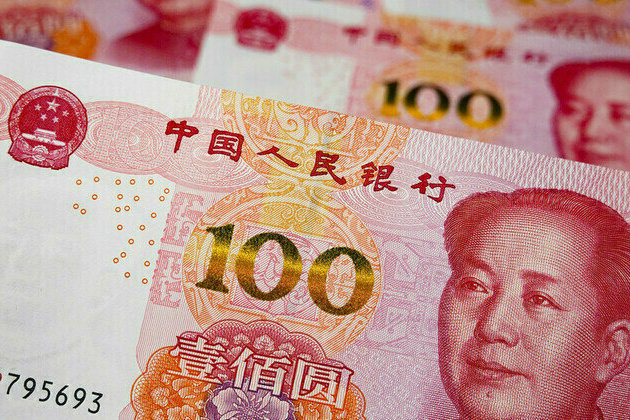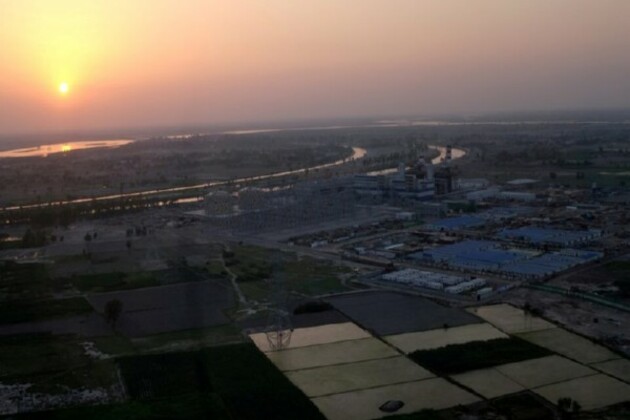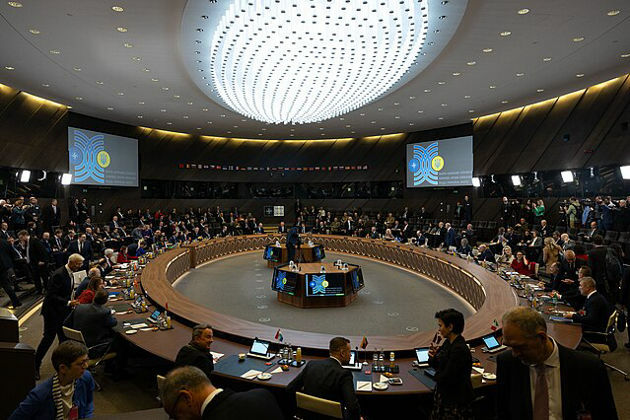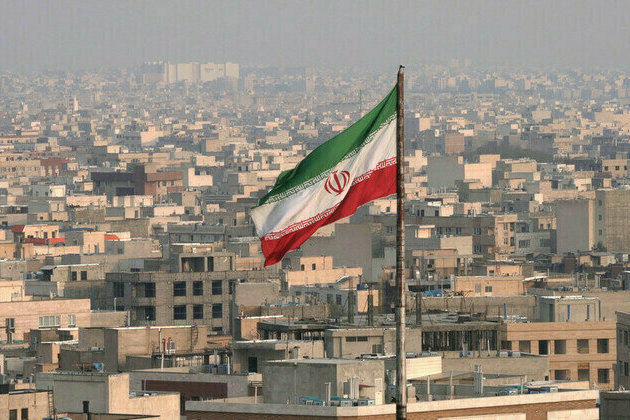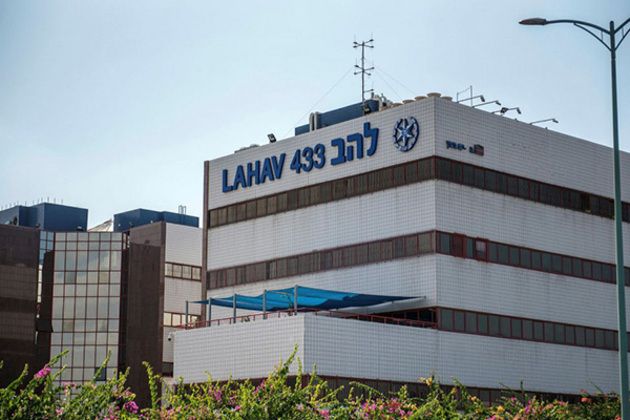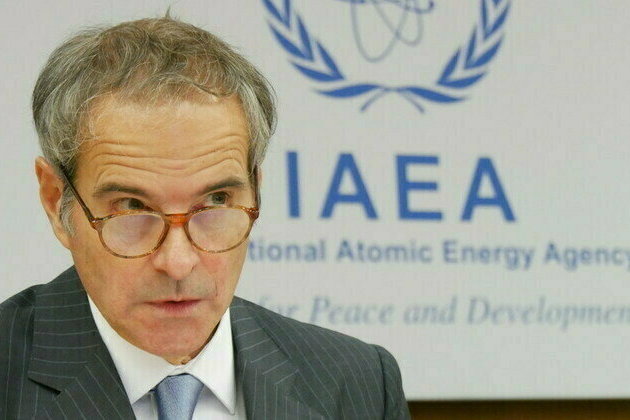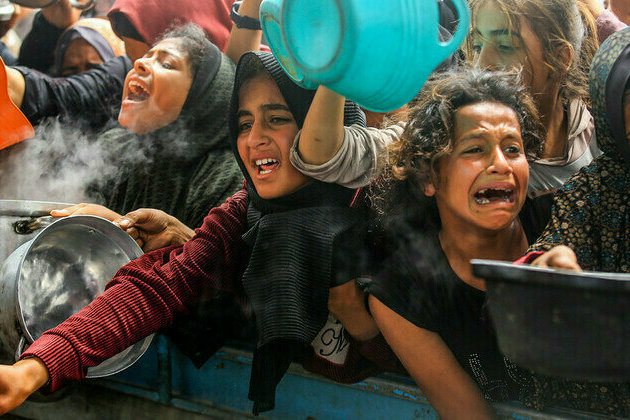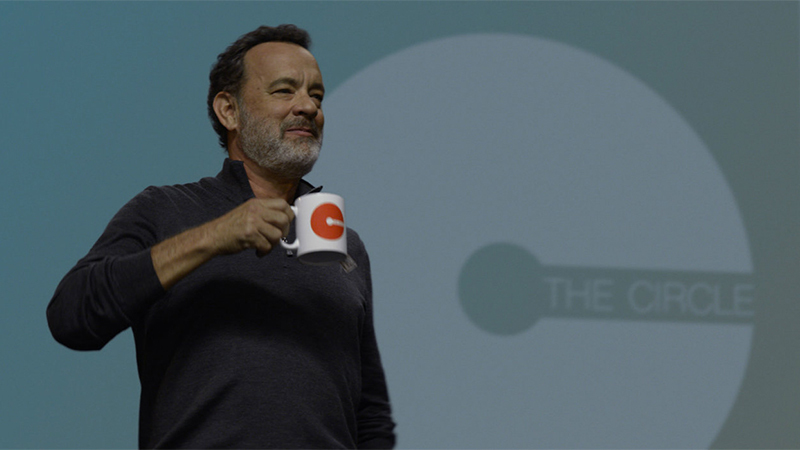Democratic Republic of Congo-Rwanda Peace Agreement Major Step Forward towards Ending Conflict, Mission Head Tells Security Council, Urging Collective Action
Press UN
28 Jun 2025, 00:57 GMT+10

Violence, humanitarian crises and instability driven by warring factions continue to roil the eastern part of the Democratic Republic of the Congo, despite a peace agreement newly signed with Rwanda, senior United Nations briefers today warned the Security Council, urging “collective action” to end the conflict.
Bintou Keita, Special Representative of the Secretary-General in the Democratic Republic of the Congo and Head of the United Nations Organization Stabilization Mission in the Democratic Republic of the Congo (MONUSCO), noted that the signing earlier in Washington, D.C., of the draft peace agreement by the Ministers for Foreign Affairs of the Democratic Republic of the Congo and of Rwanda “is a major step forward towards the end of the conflict”.
However, she warned, the situation demands urgent attention. In Ituri province, retaliatory attacks by CODECO (Cooperative for the Development of the Congo) and Zaire armed groups have continued to affect villages and internally displaced persons sites. Two new armed groups have emerged, led by Innocent Kaina and Thomas Lubanga, both convicted of serious international crimes including recruitment of children. While attacks on civilians by the Allied Democratic Forces (ADF) in North Kivu and Ituri have decreased, the threat they pose has not diminished but rather evolved. In this context, she said MONUSCO continues to leverage its comprehensive protection strategy to reduce threats to civilians and improve early warning and rapid response.
Violence in the eastern region continues to disproportionately affect women, boys and girls, with rape and other forms of sexual violence systematically used as weapons of war. The humanitarian situation is further untenable, with 27.8 million people food insecure, nearly 1.4 million children suffering from acute malnutrition and some 7 million people internally displaced. She further warned that the suspension of funding from the main donor, which covered 70 per cent of the humanitarian response in 2024, is forcing humanitarian actors to refocus solely on vital emergencies. With the humanitarian response plan only 11 per cent funded, she called “on the international community to act without delay” to guarantee the resources “on which millions of lives depend”.
However, she welcomed domestic Congolese initiatives, particularly the meeting between President Félix Antoine Tshisekedi Tshilombo with religious leaders and some actors of the political opposition. Further, she reiterated an appeal for adopting the law against tribalism, racism and xenophobia. She commended all parties including the Congo River Alliance (AFC) and the 23 March Movement (M23), for enabling her to visit Goma for the first time since the city fell in January, noting progress towards lifting of restrictions on MONUSCO’s ability to operate effectively.
This week, she recalled, MONUSCO facilitated the second round of the Aru Peace Dialogue, under leadership of Ituri provincial authorities with participation of CODECO, Zaire and other armed groups. Building on the recent large-scale launch of reintegration efforts by the National Disarmament, Demobilization, Community Recovery and Stabilization Programme, hundreds of disarmed combatants have now joined community projects offering income-generating activities. Meanwhile, MONUSCO is actively supporting justice efforts in Ituri, with perpetrators of conflict-related sexual violence, whether State agents or members of armed groups, being prosecuted and tried. “The path to lasting peace in the Democratic Republic of the Congo requires shared responsibility,” she stated. “It demands collective action.”
The representative of Sierra Leone, Chair of the Security Council Committee established pursuant to resolution 1533 (2004) concerning the Democratic Republic of the Congo, briefed the 15-member organ on his visit to Angola, the Democratic Republic of the Congo, Uganda and Rwanda between 14 and 25 November 2024 — “in a climate of regional tensions and intense diplomatic efforts led by the President of Angola, the African Union designated facilitator”.
The territorial expansion by the sanctioned M23, with reported external support, and establishment of de facto administrative structures in territories controlled by the group, coincided with reports of increased support for other armed groups. In addition, he noted, the sanctioned ADF continued to pose grave threats to civilians. Discussions, he recalled, focused on issues including the impact of the sanctions regime, the Luanda and Nairobi processes, the security situation in the eastern region, armed group activities and support networks, and abuses including sexual and gender-based violence and violence against children.
He reported that ADF, M23 and Wazalendo were the primary perpetrators, with representatives of civil society organizations and internally displaced persons providing dramatic first-hand accounts. The Kinshasa Government and some civil society actors expressed doubts about the scope of the current sanctions measures, suggesting that they did not target decision makers with the ability to meaningfully influence the situation in eastern region, with reports that sanctioned individuals moved freely in neighbouring countries.
In the ensuing debate, Council members hailed the signing of the peace agreement, with the delegate of the United States calling it a “major accomplishment” which “supports African-led processes and represents a historic step towards securing a durable peace” in the eastern region, while creating conditions for economic development. For his part, France’s delegate emphasized that it “must be translated into tangible and visible progress on the ground” — beginning with the cessation of hostilities and reopening of the Goma airport to safe, unimpeded humanitarian access. China’s representative called on all conflict parties to achieve a ceasefire ending the violence, in line with Council resolution 2773 (2025). “There must be a sincere commitment,” he stressed.
However, several member States including Greece and Panama voiced alarm over reports of widespread sexual violence and forced recruitment of minors, with the United Kingdom’s delegate stating: “According to UNICEF [UN Children’s Fund], a child is reported raped every half hour in eastern DRC [Democratic Republic of the Congo].” He urged all parties to uphold their obligations under international humanitarian law, noting his country’s Foreign Secretary announced an increase of over $18 million to the humanitarian response. Denmark’s delegate further cited the looting of humanitarian and medical facilities, deepened the suffering of civilians — with survivors of sexual and gender-based violence in North and South Kivu unable to access essential care. Echoing the “horrifying” reports, the representative of the Republic of Korea also warned that the growing spread of hate speech based on physical appearance signals deepening ethnic divisions and a troubling erosion of national unity.
Sierra Leone’s representative, also speaking for Algeria, Guyana and Somalia, expressed “solidarity with the brave men and women serving MONUSCO”. He urged the Council and all regional and international partners to ensure that MONUSCO personnel are fully supported and empowered to carry out the mandate entrusted to them by the Council. “Continued support to MONUSCO is essential for effective mandate implementation,” he underscored.
Other speakers, including the representatives of Slovenia and Pakistan, voiced concern over the challenging conditions under which the Mission continues to operate, with the later expressing hope that the severe restrictions imposed by AFC/M23 on freedom of movement and resupply will soon be lifted. These constraints have seriously undermined the Mission’s ability to fulfil its mandate, while attacks on UN peacekeepers constitute war crimes, he stressed.
For her part, the Russian Federation’s delegate noted that the escalation of the crisis has seriously impacted MONUSCO’s capacity to implement its mandate. For six months, the peacekeepers have been coexisting with M23 in those areas which it occupies — with the situation in Goma being “a very good illustration of the fact that this status quo has exhausted itself”. She called on the UN Secretariat to come up with proposals regarding the Mission’s future deployment.
The representative of the Democratic Republic of the Congo underscored that the eastern part of his country is witnessing ongoing Rwandan aggression, with troops deployed in support of AFC/M23 massacring civilians, raping women and girls, force-recruiting young boys and engaging in other serious violations. Congolese in Goma, Bukavu, Rutshuru and Bunagana continue to “buckle under the yoke of occupation”, he stated. The RDF-M23-AFC coalition keeps expanding, strengthening the establishment of a parallel administration. Yet, five months ago, the Council unanimously adopted resolution 2773 (2025), demanding that Rwanda M23/AFC proxies withdraw their troops. Noting today’s peace agreement, he expressed hope that the United States will impose sanctions if Rwanda fails to comply.
He recalled that the development of a strategy for a gradual, sustainable withdrawal of MONUSCO was not submitted to the Council by the 31 March 2024 deadline — affected by the deterioration of the security situation. Citing the devastating humanitarian crisis, he warned that the 2025 Humanitarian Intervention and Response Plan is severely underfunded, with 21.2 million people currently in need. Calling on donors to fill the approximately 88.8 per cent gap in funding, he assured the Council that the Government is committed to finding a lasting solution to end the crisis that has “rocked the eastern part of my country for almost three decades”. He voiced hope that the peace agreement will lead to the effective and verified withdrawal of Rwandan troops from the territory, along with AFC-M23 proxies.
Responding, Rwanda’s representative called for the parties to the peace agreement to next form a standing joint security coordination mechanism, whose “first order of business” must be to neutralize the Forces Démocratiques de Libération du Rwanda (FDLR) and to lift Rwanda’s defensive measures, as approved under the Luanda Process. The threat of FDLR and Rwanda’s defensive measures are inherently inseparable, he added, pointing out that MONUSCO, by ignoring one and dramatizing the other, rendered itself unable to effectively discharge its mandate. In that regard, the Special Representative’s recent engagement with leadership of the Africa Finance Corporation/M23 was long overdue and a constructive step forward, he said. Failure to address their legitimate demands for civil rights, political inclusion and to implement previously agreed commitments will prolong tensions and ensure a return to cyclical violence.
To support the promising but still fragile efforts, MONUSCO must impartially prioritize the protection of civilians, play a constructive and discreet role in facilitating dialogue among all relevant actors and stop amplifying politicized narratives that undermine confidence. He called on MONUSCO to tone down the rhetoric, end public attacks and instead focus on working and engaging in supporting the fragile but credible diplomatic initiatives under way. The Council must uphold the principles of fairness, consistency and peace, he said, adding: “The true measure of this Council will not be in how many conflicts it has managed, but in how many it has truly resolved.”
 Share
Share
 Tweet
Tweet
 Share
Share
 Flip
Flip
 Email
Email
Watch latest videos
Subscribe and Follow
Get a daily dose of Greek Herald news through our daily email, its complimentary and keeps you fully up to date with world and business news as well.
News RELEASES
Publish news of your business, community or sports group, personnel appointments, major event and more by submitting a news release to Greek Herald.
More InformationInternational Business
SectionTrump-backed crypto project gets $100 million boost from UAE fund
LONDON, U.K.: A little-known investment fund based in the United Arab Emirates has emerged as the most prominent public backer of U.S....
Russias largest bank delivers pessimistic 2026 forecast
Dwindling demand for loans due to high interest rates is hurting Sbers profits, its CEO has warned Russia's largest bank, Sber, is...
PM Modi's 5-nation visit: Vaccine development among focus items in Ghana; discussions in Namibia to touch on UPI expansion
New Delhi [India], June 30 (ANI): Prime Minister Narendra Modi's upcoming five-nation tour, beginning on July 2, will see significant...
India to set up vaccine hub in Ghana, expand UPI in Namibia during PM Modi's multi-nation tour
New Delhi [India], June 30 (ANI): Prime Minister Narendra Modi's upcoming five-nation tour, beginning on July 2, will see significant...
Cash disappearing in China Le Monde
Mobile payments are dominant in the Asian country, while the traditional means of exchange has dwindled to near extinction, the outlet...
Pakistan government increases gas prices
Islamabad [Pakistan], June 30 (ANI): Pakistan's Oil and Gas Regulatory Authority (OGRA) announced a gas price hike for the majority...
Mediterranean
SectionApple allows outside payment links under EU pressure
SAN FRANCISCO, California: Under pressure from European regulators, Apple has revamped its App Store policies in the EU, introducing...
Alliance eyes major military buildup to counter Russia
THE HAGUE, Netherlands: NATO is pressing ahead with a sweeping new defense spending target, calling on all 32 member nations to commit...
Iran warns Ukraine of consequences over recent comments
The Foreign Ministry has delivered a note of protest over Kievs support for US and Israeli military actions Tehran has summoned Ukraine's...
Police: Israelis plotted attacks for Iran, including assassination
Tel Aviv [Israel], June 30 (ANI/TPS): Israeli citizens were arrested earlier this month on suspicion of working on behalf of Iranian...
We dont know where Irans enriched uranium is IAEA chief
Rafael Grossi has said over 400kg of nuclear material may have been moved before Israeli-US strikes More than 400 kilograms of enriched...
A deadly trap awaits starving Palestinians as they flock for aid
Israel has shut out the UN, installing its own group to hand out food to the starving population except it distributes death instead...


